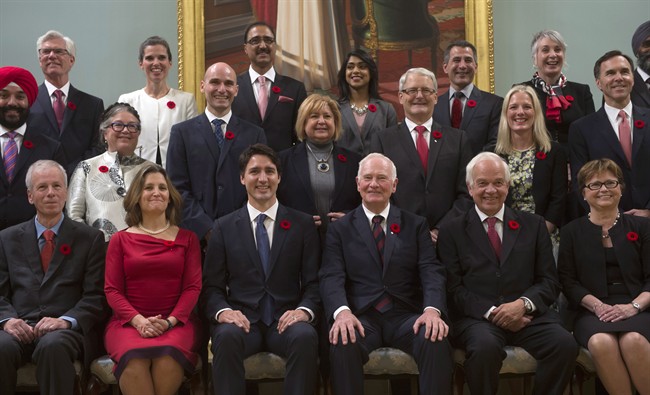It seems as though any time there is news that focuses on a women’s issue or a female perspective, there is an inevitable chorus of voices that seek to establish the practice as pandering at best or “reverse sexism” at worst.

It doesn’t really matter what the item is either. It can be anything from substantive political goals like establishing gender equality in cabinet or a foreign policy that seeks to highlight female empowerment, or it can even be as inane as a news outlet choosing to delve into news and opinion that is tailored for a female audience.
Back in January of this year the Washington Post announced it would be branching out to target millennial women through a multi-platform product named The Lily. While many aspects of The Lily, which was unveiled earlier this month, are somewhat novel in terms of its delivery, the core concept of a mainstream outlet looking to provide its female audience with specific content has been done time and time again. After all, New York Magazine has The Cut, Gizmodo Media Group has Jezebel, Slate has its XX Factor blog, and Vice Media has Broadly. The reality is that there is a legitimate demand for these kinds of outlets, and mainstream media is simply supplying that. But facts and basic supply and demand can be pesky.
Although, nothing really riled people up as much as when the prime minister announced his intention to establish the country’s first federal cabinet that would have an equal split when it came to gender. The criticism was swift and unsurprisingly predictable.
WATCH: Justin Trudeau on why his cabinet is gender balanced: Because it’s 2015
You can either have diversity or a meritocracy, but you can’t have both. Merit and diversity are mutually exclusive characteristics, and by advocating for diversity, one is necessarily lowering standards in order to accommodate it. At least, that was the common sentiment that was expressed by many right-leaning politicians as well as much of the commentariat.
Even in the abstract, the argument that by somehow ensuring smart women at the cabinet table meant that incompetent women would be taking the place of much more qualified men was weak. It presupposed the notion that a cabinet full of men was always about showcasing the most qualified men and never took into account other factors such as regionality or nepotism, which is laughable if one considers past cabinets, Conservative or Liberal.
READ MORE: Redefining the f-word: What does feminism look like today?
The argument falls even flatter if recent research from the London School of Economics is considered wherein researchers found that the application of gender quotas in political systems does not promote unqualified women on the backs of qualified men, but rather merely displaces “mediocre” men for more qualified women. The study authors state this quite plainly, “Our main finding is that gender quotas increase the competence of the political class in general, and among men in particular. Moreover, quotas are indeed bad news for mediocre male leaders who tend to be forced out.”
While the study was focused on political quotas, its authors note that it is possible to glean lessons for the private sector as well: “Many firms have a history of male-dominated leadership and are sometimes accused of having ‘locker-room’ mentalities and cosy selection rules. These reinforce the selection of men, and leaders may feel comfortable being surrounded by non-threatening mediocrity. Just as in politics, therefore, a quota has the potential to undercut the dominance of a mediocre elite.”
WATCH: International Women’s Day: What women are still fighting for

I realize this is the type of rhetoric that gets people in a tizzy, but it’s worth noting that at virtually every step along the way of female advancement people have been opposed on the basis of sheer passion rather than relying on facts and evidence. Women’s equality isn’t merely feel-good projects for “social justice warriors.” There is an increasingly large body of research that suggests a strong economic case for equality, both here and abroad.
In Canada, if we were to further harness women’s economic potential, it would mean adding billions to our economy. According to a report by the McKinsey Global Institute, “Canada could add $150 billion in incremental GDP in 2026 or see a 0.6 per cent increase of annual GDP growth. That’s six per cent higher than business-as-usual GDP growth forecasts over the next decade.” Globally, the impact would be in the trillions: “A ‘best in region’ scenario in which all countries match the rate of improvement of the fastest-improving country in their region could add as much as $12 trillion, or 11 per cent, in annual 2025 GDP.”
READ MORE: Liberals unveil new ‘feminist’ foreign aid, but not much new money
So when the federal government earlier this month stated that it would be re-structuring its international development aid to specifically target organizations looking to further the rights of women and girls, it wasn’t merely a public relations exercise for the Liberals. It made good economic sense. Put another way, feminism is ultimately sound fiscal policy.
People may bristle at media outlets supplying a demand for its female audience, get outraged at women being represented at the political level, or scoff at the merits of integrating women fully into the economy, but the underpinnings of all these things are based in facts and rationality. Perhaps those who are criticizing these issues should take the advice they often hurl at women on the front lines of the fight for equality and not be so emotional about everything.
Supriya Dwivedi is host of The Morning Show on Toronto’s Talk Radio AM640 and a columnist for Global News.







Comments